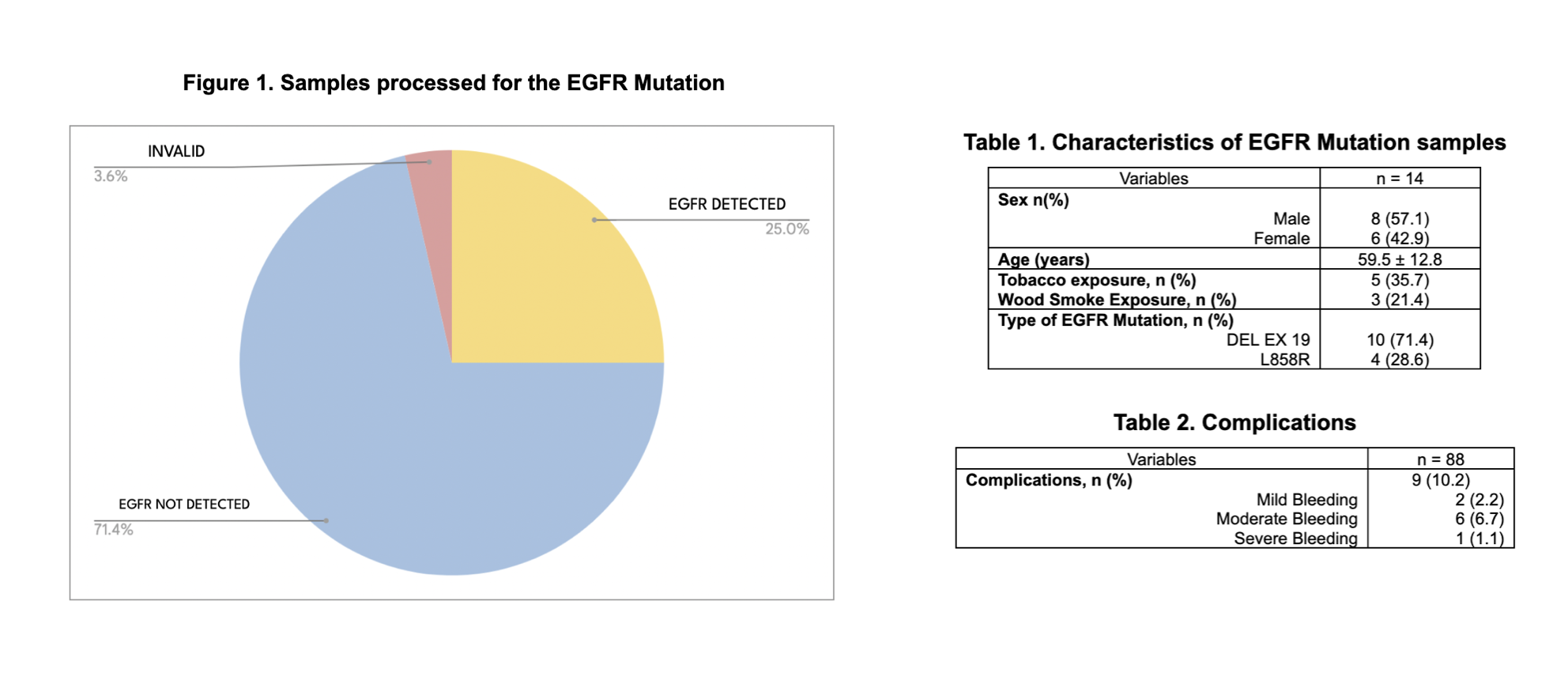Abstract
INTRODUCTION
Lung cancer is usually diagnosed in an advanced stage. The treatment for this type of cancer is individualized and determined by immunohistochemistry and molecular characterization of tumors. Searching for the mutation at the Epidermal Growth Factor Receptor (EGFR) is the main basis for targeted therapy in non small cells lung cancer (NSCLC) in advanced stages. It is hypothesized that transbronchial lung cryobiopsies could help us get a high quality sample not only to diagnose but also to identify EGFR mutations with a low rate of complications.
METHODS
We made an observational transversal study with data from the lung cryobiopsies database and clinical charts of patients who were put through a transbronchial cryobiopsy from Jan 1st 2017 to Dec 31st 2018 at the Interventional Pulmonology Unit in the Instituto Nacional de Enfermedades Respiratorias, Mexico. All patients with a primary lung cancer diagnosis were included. The primary outcome was to identify the prevalence of EGFR mutations.
RESULTS
We identified 88 patients with primary lung cancer diagnosis. 56 (63.63%) of them were put through molecular analysis to identify EGFR mutation. EGFR mutation was identified in 25% (14/56). 3.6% (2/56) of the samples were not suitable for molecular analysis. 10.2% (9/88) patients had a complication.

CONCLUSIONS
Transbronchial lung cryobiopsies are a safe option for the diagnosing lung cancer and to perform molecular analysis to identify mutations.